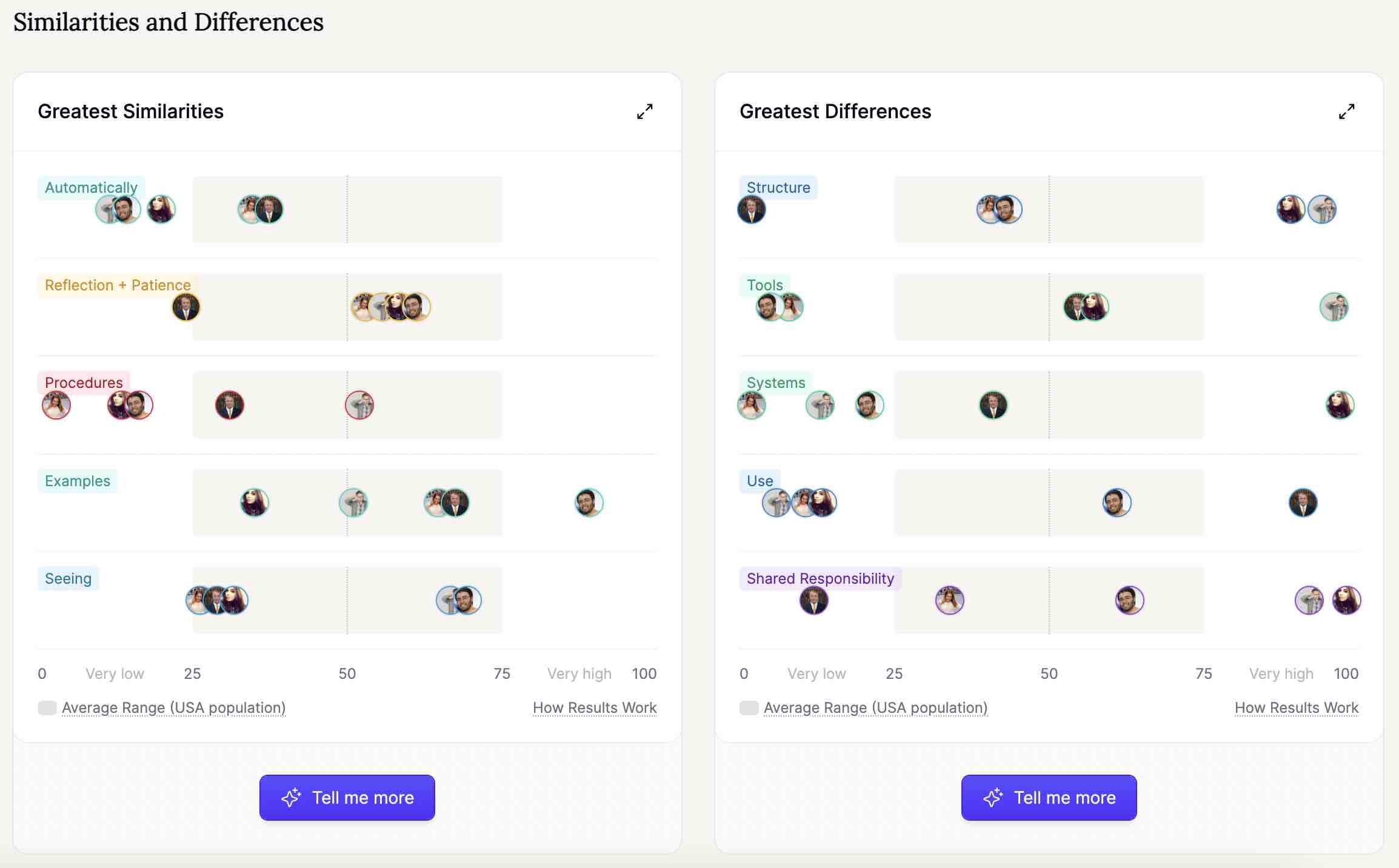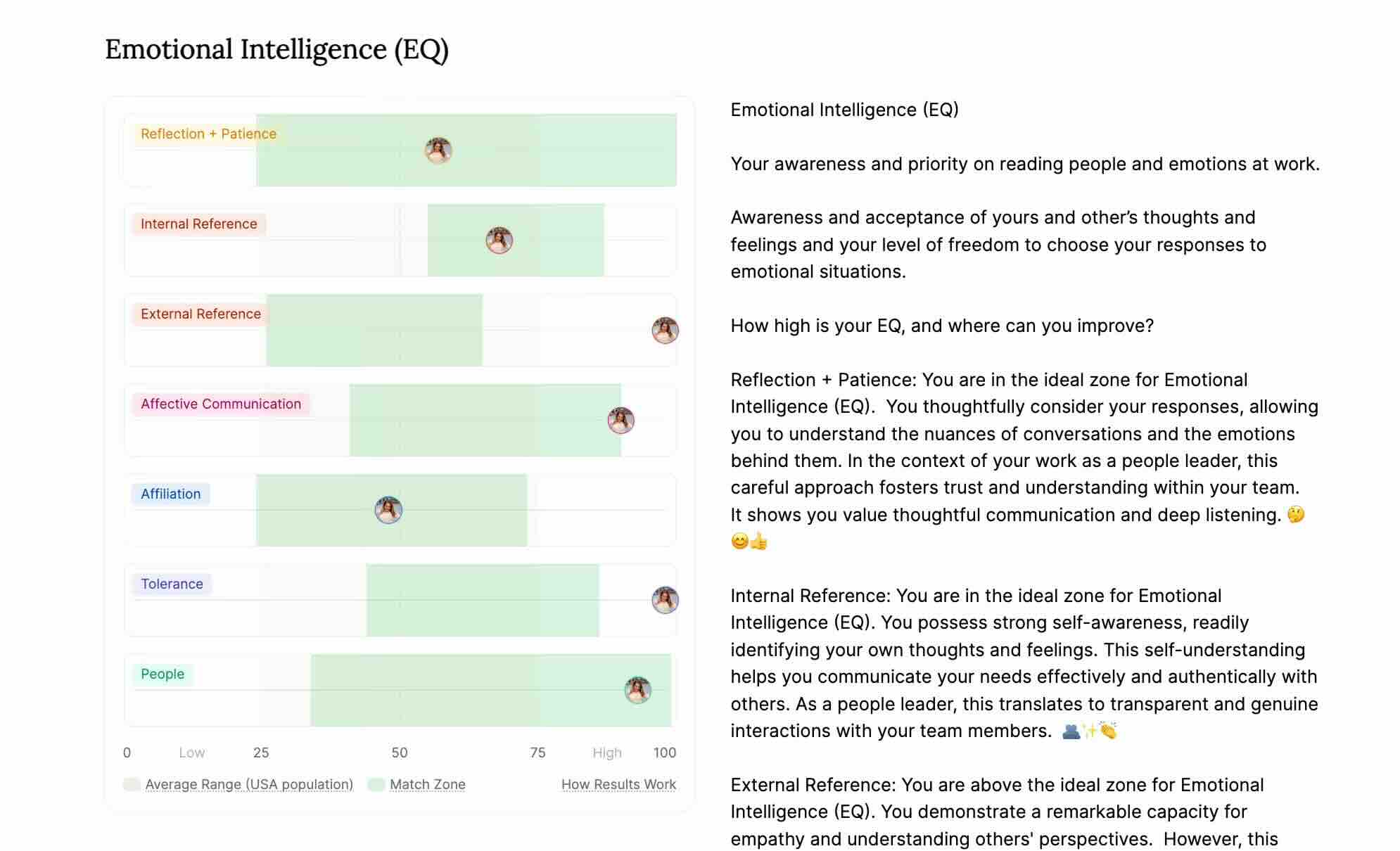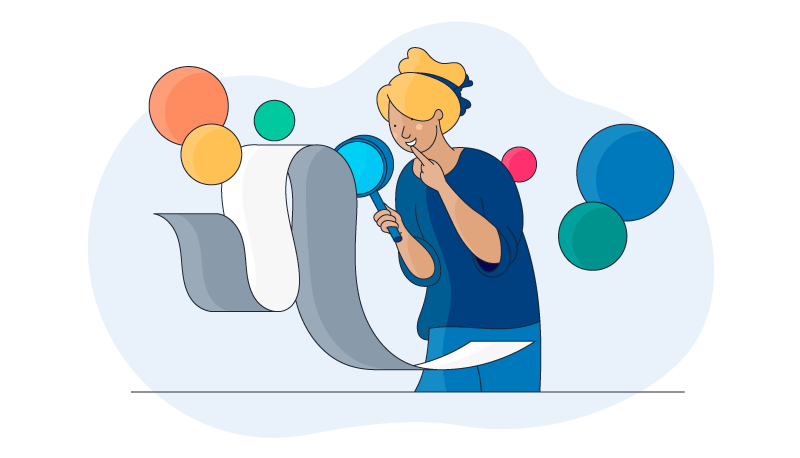The best soft skills assessments to uncover your edge
Ever wonder what makes great teams click? It’s not just talent or tech—it’s soft skills. This guide breaks down how to assess them (yourself or your team) and use that insight to fuel performance, engagement, and growth.
- Author
Amy Rigby

What is a soft skills assessment (and why it matters)?
A soft skills assessment is like having a compass for human potential. It's how we measure and understand those essential people skills – from emotional intelligence to problem-solving – that make the difference between good and exceptional performance. Soft skills show you how to lead, communicate, and thrive. Whether you're hiring someone new or just want to level up, it gives you the roadmap.
What are soft skills?
Soft skills are the non-technical abilities that influence how we interact with others and approach problems. They're also known as people skills or interpersonal skills, and (in the past) they haven't been easily measured.
Soft skills include interpersonal communication, empathy, listening, and conflict resolution.
Hard skills are technical skills directly related to a job, such as computer programming, physics, statistics, and product management. Hard skills are quantifiable and can be easily measured.
Why assessing soft skills gives you a real edge
Consider the coder who creates brilliant algorithms... but they're missing the secret sauce that turns good work into extraordinary success. That's where soft skills come in. Think about it—technical expertise alone is like having a high-performance car without knowing how to drive. You need those essential human skills to really make things happen. We're talking about reading the room in team meetings, truly understanding what your users need, and turning your manager's vision into reality.
When you assess soft skills (whether you're hiring, leading, or growing personally), you're unlocking a treasure trove of potential. For hiring managers, it's like having X-ray vision during interviews—you can spot the true team players. For leaders, it's your roadmap to building stronger teams by understanding exactly where each person shines and where they could use a boost.
The best part? When you bring together people with different soft skill superpowers, magic happens! Your team becomes an unstoppable force of diverse thinking styles and approaches. And who doesn't want their team operating at superhero levels? 🚀
The soft skills employers look for most
- Problem-solving abilities
- Leadership ability
- Critical thinking
- Creative thinking
- Time management
- Conflict management
- Listening skills
- Stress management
- Logical reasoning
- Strategic thinking
- Communication skills
What are the benefits of soft skills assessments (it's not just about hiring)?
The benefits of soft skills assessments include making more informed hiring decisions, increasing productivity and job performance, improving team dynamics, and retaining more engaged employees.
More informed hiring decisions
Because soft skills affect job performance, the use of pre-employment assessments is highly valued for its ability to help you make better decisions when it comes to hiring. According to research by SHRM, more than half of employers use assessments to gauge a candidate's skills. Further, 79% of them say that skills assessments are equally as important or more important than other hiring criteria.2
Higher employee productivity
When you know where each individual's strength lies, you can leverage that to place them in the right role and assign them the right tasks. And when you understand their blind spots, you can better target them with the right coaching and training to improve. In one University of Michigan study,3 workers who received soft skills training boosted productivity by 12%.
Improved job performance
Many research studies have shown that soft skills development changes employee behavior4 and improves the performance of employees. By performing a soft skills assessment test you can target blind spots with coaching and training to improve on-the-job performance. This is key to determining someone's long-term success.
Improved team dynamics
A soft skill measurement can also help you better manage your workforce for improved team dynamics. For example, if one team member has a reading learning style (meaning they need to read research papers and facts before making a decision) and another has a kinesthetic learning style (meaning they are convinced by rolling up their sleeves and trying something), you can use that to the team's advantage.
While those may seem like opposing traits, they improve overall team performance because they complement each other. Essentially, one person's blind spot is supported by the other person's strength. People managers with deep insights into team members can optimize the team structure.
📖 Read our guide on how to run a team dynamics workshop.
Greater employee engagement
Gallup's research into human behaviors and strengths reveals that employees who use their strengths daily are 6 times more likely to be engaged at work. What's more, Gallup shares:
"When employees know and use their strengths, they are more engaged, perform better, and are less likely to leave their company."
Reduced staff turnover
Here's a real-world example of this: In her book HR Disrupted, Lucy Adams describes how reward consultancy organization NextJump improved its hiring process and the quality of its potential candidates.
By dedicating years to observing its top employees, the company was able to identify the number one quality that they all shared: humility. Knowing this, it designed a 45-minute interview to determine candidates' humility levels. By doing so, staff turnover dropped drastically from 40% to 1%.
How to run a soft skills assessment (for hiring and development)
Conduct pre-employment assessments
Imagine getting a sneak peek into how candidates think and work before spending hours in interviews. With soft skills assessments, you can uncover what truly motivates potential hires and see how they mesh with your team dynamics.
Start by understanding their motivations through targeted assessments (goodbye, gut feelings!), such as Marlee's motivation assessment, and then see how they shine in team scenarios. It's like having a crystal ball showing exactly how they'll fit into your workplace puzzle. Plus, you'll save precious time by focusing on candidates who align with your team's DNA.
👉 Learn how to create a team space in Marlee

A team space in Marlee provides insights into team similarities and differences
Use soft skill assessments to boost your current team
But a soft skills test isn't just for job candidates; it's for current employees, too. Remember, these assessments aren't for punishing people who get the ‘wrong’ results. Rather, they're essential tools for boosting employee engagement by aligning their strengths with their tasks.
You can also ensure they feel a sense of belonging and competence on their team, as you can leverage their strengths on projects and in groups.

A Marlee Soft Skills Board
That's exactly how tech unicorn and graphic design platform Canva uses Marlee for its current employees. The assessment results drive more productive one-on-ones and growth and development conversations. Canva also uses Marlee to develop its team through internal coaching programs.
🧐 Curious where you stand? Take Marlee’s free soft skills assessment and create your own personalized Soft Skills Board. It’s fast, research-backed, and built to help you grow—whether you're a team leader or just starting out.
Ask behavioral interview questions
Another way to assess soft skills is through behavioral interview questions. These questions aim to learn how someone acted in a situation in the past. For example, you might ask, ‘Tell me about a time when you were given a task, but you didn't have the resources to complete it.’ Or, ‘Describe a situation from your past where you conflicted with someone at work. How did you resolve it?’ Their answers demonstrate their soft skills.
Observe how an employee responds to a situation in real-time
Of course, instead of asking someone to describe a situation you weren't there to witness, you could also observe a situation in real-time. This is particularly useful for managers to see how teams interact.
5 Best soft skills assessment tools (tried and tested)
Marlee
Marlee is the only soft skills technology blending 20+ years of motivation research with on-demand AI coaching. Think of Marlee as your personal growth ally, blending cutting-edge AI with deep human understanding to help you unlock your full potential. Here's how it works:
Start with our free motivation assessment - you'll discover insights about your unique strengths and growth opportunities in just minutes.
Create your personalized Soft Skills Board, which shows you exactly where you shine and where you could level up. Plus, you'll get smart recommendations for online coaching programs that fit your goals perfectly - think of it as your custom roadmap to success.

A Marlee Soft Skills Board
Price: Marlee has a free forever plan that grants you access to our evidence-based soft skills assessment and one AI coaching program. Access to more features, such as unlimited AI coaching, on the Team plan starts at US$15.99/user/month (billed annually).
When to use: Marlee is useful across the entire employee lifecycle. This includes the hiring, onboarding, employee retention, new team formation, and conflict resolution.
TestGorilla
TestGorilla conducts online talent assessments to help employers make better hiring decisions based on candidates' skills. The company employs a psychometrics team to ensure the scientific validity of its tests, which are also peer-reviewed. TestGorilla also measures personality traits through popular personality tests, including the Big 5.
Price: Prices start at US$85/month for companies with 1-15 employees. TestGorilla does offer a free plan for you to try out some of their tests.
When to use: Recruitment process, hiring pipeline
HighMatch
HighMatch provides assessment products across the employee lifecycle, from pre-employment tests to employee development. The company uses psychologists to ensure the products are research-backed. HighMatch offers personality assessments that measure personality traits including assertiveness, leadership skills, risk tolerance, objectivity, and a sense of urgency.
Price: HighMatch doesn't publish prices on its website, so you must contact the company for a quote.
When to use: Hiring, retention, DEI
iMocha
iMocha prides itself on helping companies become skills-first organizations by providing tests for hiring and upskilling employees. Its current tests library represents 2,500+ different professional skills
Price: iMocha has various plans but does not publish pricing on its website. However, you can start a free trial and contact the company for pricing details.
When to use: Hiring, upskilling
Pymetrics
Pymetrics is one of the more popular gamified assessments and measures soft skills such as numerical reasoning, quantitative reasoning, risk tolerance, and decision-making. It's often used to assess potential hires in an applicant pool before or during the interview process.
Price: To find out pricing, you have to contact Pymetrics.
When to use: Recruitment process, hiring
How to make soft skills assessments more accurate (and bias-free)
Use a standardized and evidence-based test
Sure, you can assess someone's people skills by asking them or observing them, but by doing so, you introduce a lot of bias. That's why a standardized test, one that's administered in the same way with the same questions, is the smarter route. Ensure the test is evidence-based so it has the scientific rigor to ensure unbiased hiring. When choosing a vendor, ask how they designed the test and find out if it's backed by science.
Take inventory of your current top performers in key roles
Different roles require different soft skill sets, that's pretty obvious. What's less clear is exactly which key skills drive success in each role at an organization. Companies are unique, as are their top performers. That's why Marlee developed an XFactor success model that we can custom-build for a specific role at a specific organization.
We analyze the soft skills of your low, medium, and high performers and build a road map for how you can continue to hire and train high performers at your organization.
Pay attention to how you write job descriptions and where you recruit
With your XFactor model in hand, you're equipped to write exact job descriptions and recruit via the sources that will attract high performers. Using advertising keywords that include the essential skills you're looking for will ensure you receive applicants who have a higher chance of career success in the role. And from there, you can always use the free Marlee assessment to ensure potential candidates have what it takes to succeed. It's a win-win!
Is a soft skills assessment the missing link in your people strategy?
Let's talk about what really drives success at work. While technical skills get the job done, it's soft skills that turn good teams into great ones. Think about it - without measuring soft skills, you're playing a guessing game in interviews and reviews. Instead of relying on gut feelings or rehearsed answers, why not get clear insights into how people communicate, collaborate, and grow?
Whether you're hiring, building a team, or just looking to grow, soft skills assessments give you the human edge. And when you use a tool like Marlee, you're not just testing—you’re unlocking potential. Start your free soft skills assessment.
References
1. Goldberg B, 75% Of Employers Have Hired the Wrong Person, Here’s How to Prevent That', CareerBuilder, https://resources.careerbuilder.com/news-research/prevent-hiring-the-wrong-person
2. SHRM, 2022, New SHRM Research Makes the Case for Skills-Based Hiring, SHRM, https://www.shrm.org/about-shrm/press-room/press-releases/pages/new-shrm-research-makes-the-case-for-skills-based-hiring.aspx
3. Guest G, 2017, Soft skills training boosts productivity, University of Michigan News, https://news.umich.edu/soft-skills-training-boosts-productivity/
4. Deshpande S and Munshi M, 2020, The Impact of Soft Skills Training on the Behavior and Work Performance of Employees in Service Organizations, IUP Journal of Soft Skills, https://www.proquest.com/openview/e78a6f5ff61214391f5a8957dab8363d/1?pq-origsite=gscholar&cbl=2029989


